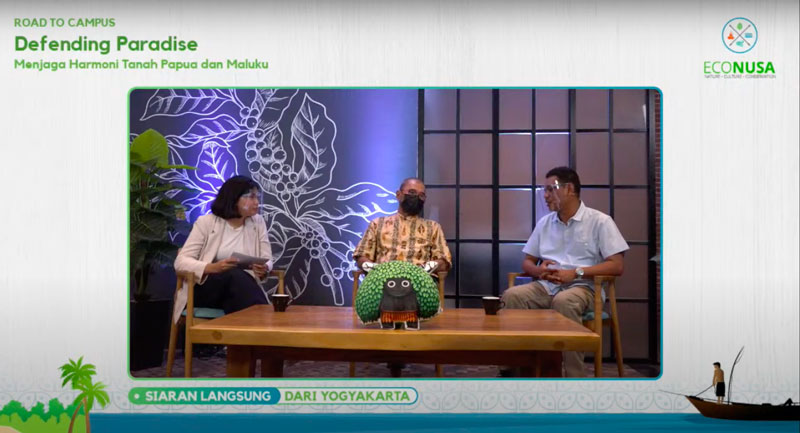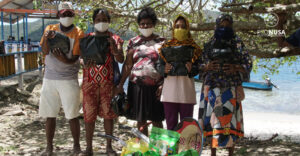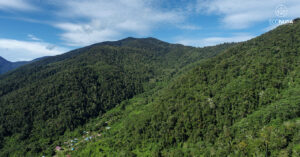
The currently happening climate crisis has made nature unpredictable. Ecological disaster that has never happened has currently affected peoples. For the reason, it requires development planning and mitigation with all supports of stakeholders across sectors to make earth a comfy dwelling from climate crisis.
Yogyakarta-based Pembangunan Nasional University (UPN) Veteran’s Coordinator of Disaster Management Post Graduate, Eko Teguh Paripurno, said the development planning of each region should be supervised. As to Eko, planning supervisory ‘troops’ can become a collaboration to avoid partial recommendation to the stakeholders.
“All of us can be troop to protect earth from the ongoing climate crisis. Students, lecturers, employees, civil servants, other communities may take parts. When development is under supervision, ecological disaster can be evaded. If there is disaster, mitigation has been done,” said Eko on a virtual discussion, Road to Campus entitled Defending Paradise: Keeping Harmony of Tanah Papua and Maluku on Thursday April 1, 2021.
Read also: Circular Economy to Reduce Plastic Waste
Eko elaborated that ecological disaster affected some regions was triggered by inaccurate development planning. Flooding in Bandung City in 2020 happened due to the poor water infiltration which is worsened by the mounting residences. During the heavy downpour, the basin-shaped Bandung City is vulnerable to flood.
Similar condition also causes flood in Pontianak. The Equator City was inundated due to the blocked drainage. The combination of high tide and high downpour has made Pontianak a city with flood.
Besides, massive flooding and landslide in Sentani, Papua, in 2019 portrayed the degraded nature that triggered ecological disaster. Nature destruction at Cycloops Mountain due to its change to dwelling and agriculture areas, illegal logging and C-type diggings made the nature hard to resist extreme downpour.
Read also: Long Road to Conserve Traditional Culinary in Tanah Papua
“Disaster and nature have connection. When the nature is in poor quality, disaster is coming to us. For instance, a development planning of a certain area is based on economic value, or forests conversion to other form which is deemed positive value. But, the loss arising from forests conversion has never been taken into account,” added Eko.
EcoNusa Foundation CEO, Bustar Maitar, said that stopping deforestation is one effort to stop climate crisis. Forests logging around the globe contributes around a quarter to the world’s greenhouse gas emission. If deforestation is uncontrollable, Bustar worries if climate crisis is not under control.
As to Bustar, forests in Tanah Papua and Maluku Island are deemed the last frontier of rainforests in Indonesia. He hoped forests in the eastern Indonesia would not have the same condition as those happened in Sumatera, Kalimantan and Sulawesi. If it happens, climate crisis will no longer be controllable.
Read also: Human and Nature Relation in Tanah Papua
The high carbon stock in Tanah Papua and Maluku Island is the reason for protecting those areas. Based on the landcover data of Ministry of Environment and Forestry (MoEF) in 2019, carbon stock in those areas is 7,145 gigatons.
“Never let forests have the same fate as those in the other islands. What happened there will affect here. Farmers could not plant on the right time. Fisherman could not go fishing due to uncertain weather. If it happens, food resources will be disrupted,” said Bustar.
Editor: Leo Wahyudi




